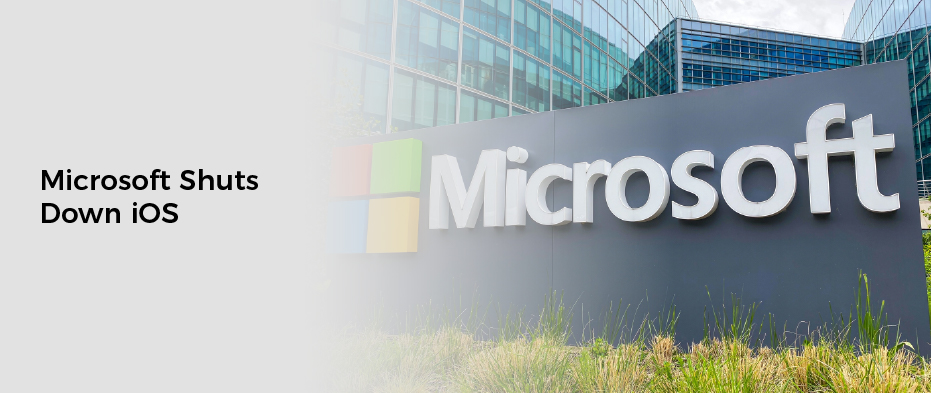The announcement that Microsoft has announced to shut down their iOS platform has made quite a few people nervous about whether or not they will still be able to use their devices. Thankfully, there are several apps that have not yet been affected by the news. These include the Microsoft Keyboard app and the Digital assistant.
Keyboard app
Microsoft recently decided to shut down its SwiftKey keyboard for iOS. This has left many iPhone users scratching their heads. However, the company hasn’t actually said anything about why it’s done so.
Instead, Microsoft rerouted the traffic to a support page. While Microsoft didn’t give any specifics, the site is still a good place to go if you’re having trouble with your iPhone’s on-screen keyboard.
Using a third-party keyboard will work if you’re willing to use a non-Apple keyboard, but the company’s own hub keyboard is slow and lacks distinct outlines for each key.
Microsoft has been experimenting with new features in its SwiftKey keyboard. Some of these include contextual predictions and emoji predictions. It also offers a one-handed mode for larger screen phones.
The company also introduced a smart algorithm that predicts what you’re typing and helps you type faster. Although this technology is available in Windows, it hasn’t made its way to iOS yet. If you’re looking for the best of both worlds, you should try a keyboard like SwiftKey.
Microsoft may have retracted the SwiftKey keyboard from the App Store, but it hasn’t forgotten about it. In fact, it’s making a big push to make iPhones easier to use.
A new app from the company is reportedly coming to the iOS App Store. Despite its name, the app is a mash-up of Swype and the new Microsoft keyboard. Like the SwiftKey app, this new keyboard will be free.
While you can’t expect to get the exact same experience from a new iOS keyboard, you will be able to enjoy the same features, such as contextual predictions and emoji predictions. Even better, you’ll be able to use the same swiping motion that Swype pioneered.
The Microsoft keyboard also has the distinction of being the first of its kind to offer a one-handed mode for larger screenphones. If you’re a larger-screened iPhone user, this feature will be useful. But, you’ll be happy to hear that this feature is just one of many that will be coming to the iPad this fall.
Digital assistant
Cortana, Microsoft’s digital personal assistant, is no longer an option for iOS and Android users. Although the app will continue to function on Windows PCs, the company is discontinuing standalone mobile apps. The new focus is on transforming AI-powered assistant experiences in the Microsoft 365 family of apps.
When launched in 2015, Cortana was positioned as a competitor to the Google Assistant and Amazon Alexa. It was designed as a voice assistant that could help users do everything from check the weather to find out news. Despite its potential, the platform failed to gain popularity among smartphone users.
A few months after the launch of the Cortana mobile application, Microsoft announced its intent to end support for the app. This came shortly after the company removed it from the Google Play Store and Xbox One. However, the decision wasn’t made until July last year.
In the meantime, Microsoft plans to reposition Cortana as a productivity-focused assistant. It will still be available on Windows PCs, and its tasks will be automatically synchronized with the Microsoft To Do app. Eventually, Cortana will be able to manage calendars and email, and join meetings.
According to Microsoft, the move reflects the increasing challenge of third-party voice assistants, such as Apple’s Siri. Since the company is focusing on the business technology that enterprises use, it is not aiming to compete with virtual assistant leaders on consumer devices.
But in the meantime, Microsoft is repositioning Cortana for better support of the company’s Office 365 suite of applications. As part of this shift, the company will offer personalized briefs in Outlook for Exchange users. They will also be able to add these personalised briefs to their Outlook calendar.
While Microsoft has decided to scale back its ambitions for Cortana, it remains the crown jewel in its enterprise suite. Users will need to be trained to use its capabilities effectively. Even if the assistant continues to work on Windows PCs, it will be removed from the Microsoft Launcher, as well as from the Xbox and Skype platforms.
With the shutdown of the mobile apps, the company is trying to ensure that all of the Cortana content is accessible via Windows. The company also noted that it will discontinue support for third-party Cortana skills.
Competitor to Alexa and Google Assistant
Microsoft announced plans to shut down its voice assistant Cortana in 2020. The decision came in the wake of a loss in the battle for the virtual personal assistant, and reflects the competition that third-party voice assistants face.
It’s also a sign of Microsoft’s shifting focus to the enterprise market. CEO Satya Nadella has said that the company will scale back its ambitions for the AI assistant.
In January, the company said that it was not seeing Cortana as a direct competitor to Alexa. Instead, it wanted to make it more useful in everyday tasks. And that’s the simplest way to describe its new vision for the voice assistant.
A couple of years ago, it seemed that Amazon’s Alexa and Google’s Assistant were the only viable alternatives. They were both great at performing simple commands. However, they lacked features that made them truly useful.
Google Assistant is better at understanding natural language and being able to respond to requests. It can also launch apps and send messages. It’s more personal than Siri and a lot easier to use.
Amazon Alexa is also a good choice. It’s available on a wide variety of smart speakers. And it works with Fire TVs and Fire tablets.
But it isn’t as good at hearing what you say. Apple’s Siri is a little better at that.
Google Assistant is more sophisticated than its Apple counterpart. It’s better at providing fast responses to orders. Although, it’s not quite as powerful as Alexa at understanding context.
So which is the best? If you’re looking for a digital assistant for your home, the choice is between the two. You have to decide if you need more power, convenience, or a more intuitive experience.
It’s not always easy to find the right app. While it’s easy to access hands-free services, finding dedicated apps is often more difficult. Luckily, Apple has an assistant baked into iOS, so you won’t have to worry about that.
It’s also a good idea to keep an eye on how the companies handle their updates. Some have a habit of removing features from their apps. As a result, you may find that you can’t find new skills in your list.
Impact on iOS users
Apple recently made major changes to the privacy of its iOS users. These changes will make a big impact on how advertisers can reach consumers on their devices.
In April, Apple introduced App Tracking Transparency, which will affect the way many mobile ads work. Facebook and other companies that track data through mobile apps are not happy with the update. They argue that it will limit their ability to accurately measure data. However, this will not have an impact on all campaigns.
iOS will still notify users of tracking. It will also allow them to opt out. But many users may choose to deny permission. As a result, ad personalisation will become difficult, and look-like audiences will not be accurate. This will impact how marketers can create social advertising.
Facebook has also increased attribution efforts in recent years. Its multi-channel attribution allows marketers to track their marketing efforts across various platforms. For example, you can see how the traffic for a particular campaign breaks down. You can check how much of your traffic comes from Facebook, Google, and other networks.
The update will also change the way advertisements are targeted. In many cases, you will no longer have the option to target individuals based on their location. ATT will also require a user’s consent. This will limit the targeting power of programmatic placements.
Another challenge Facebook is facing is the new messaging standards, which will be implemented through Rich Communications Services (RCS). RCS is a messaging platform that will include group chats. Additionally, text messages will be larger and more detailed, and typing indicators will be added. Users will also be able to read receipts.
Although the effects of the iOS 14 update are not going to be felt by all advertisers, it is important to consider how the changes will affect their efforts. If you want to maximize the value of your ad spending, it is critical to know how these changes will impact your data. Luckily, you can get an early head start.
With the launch of iOS 13, Apple has changed the way it prompts users for location tracking permissions. If you have opted out of location tracking, you will not receive a prompt, but you can always grant “Allow Always” to location tracking.



